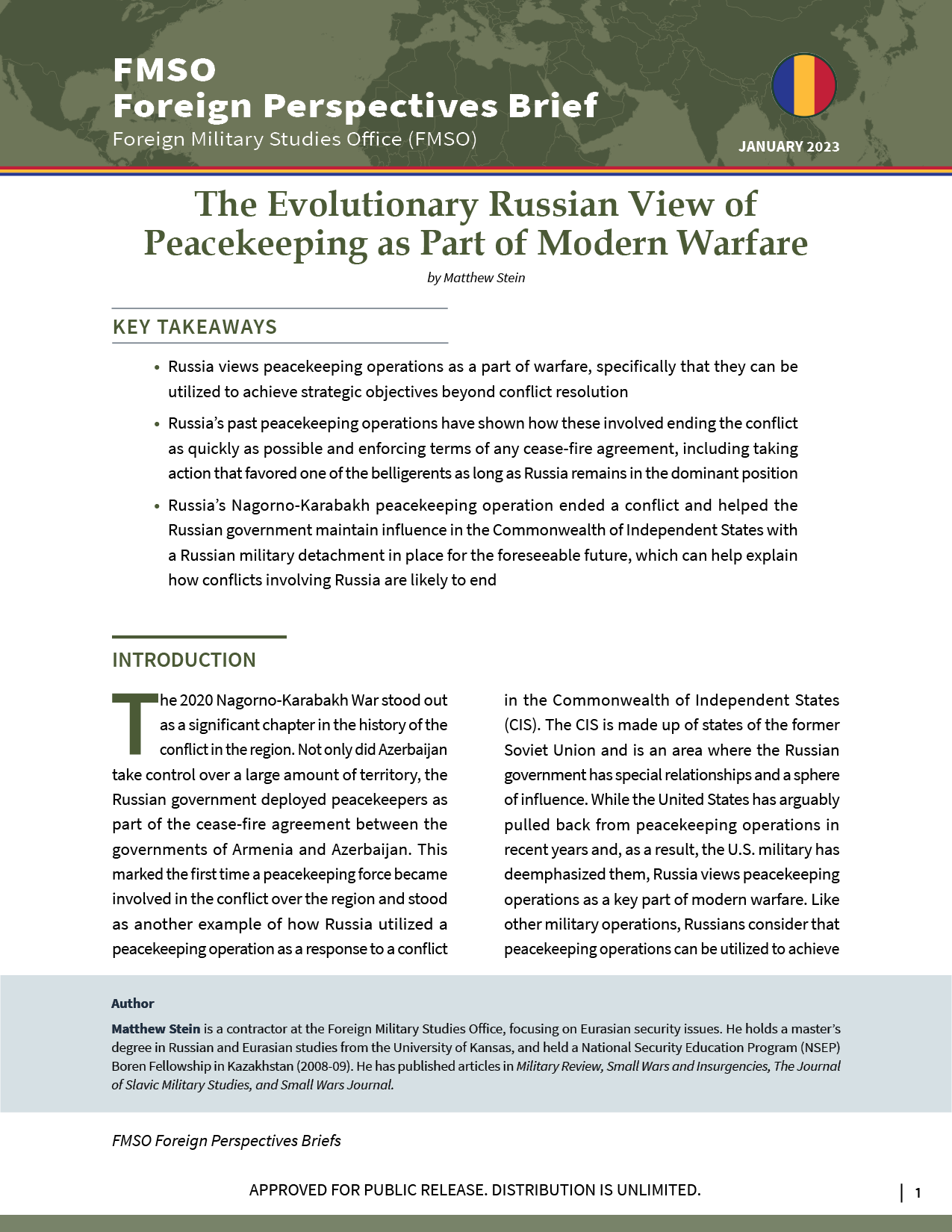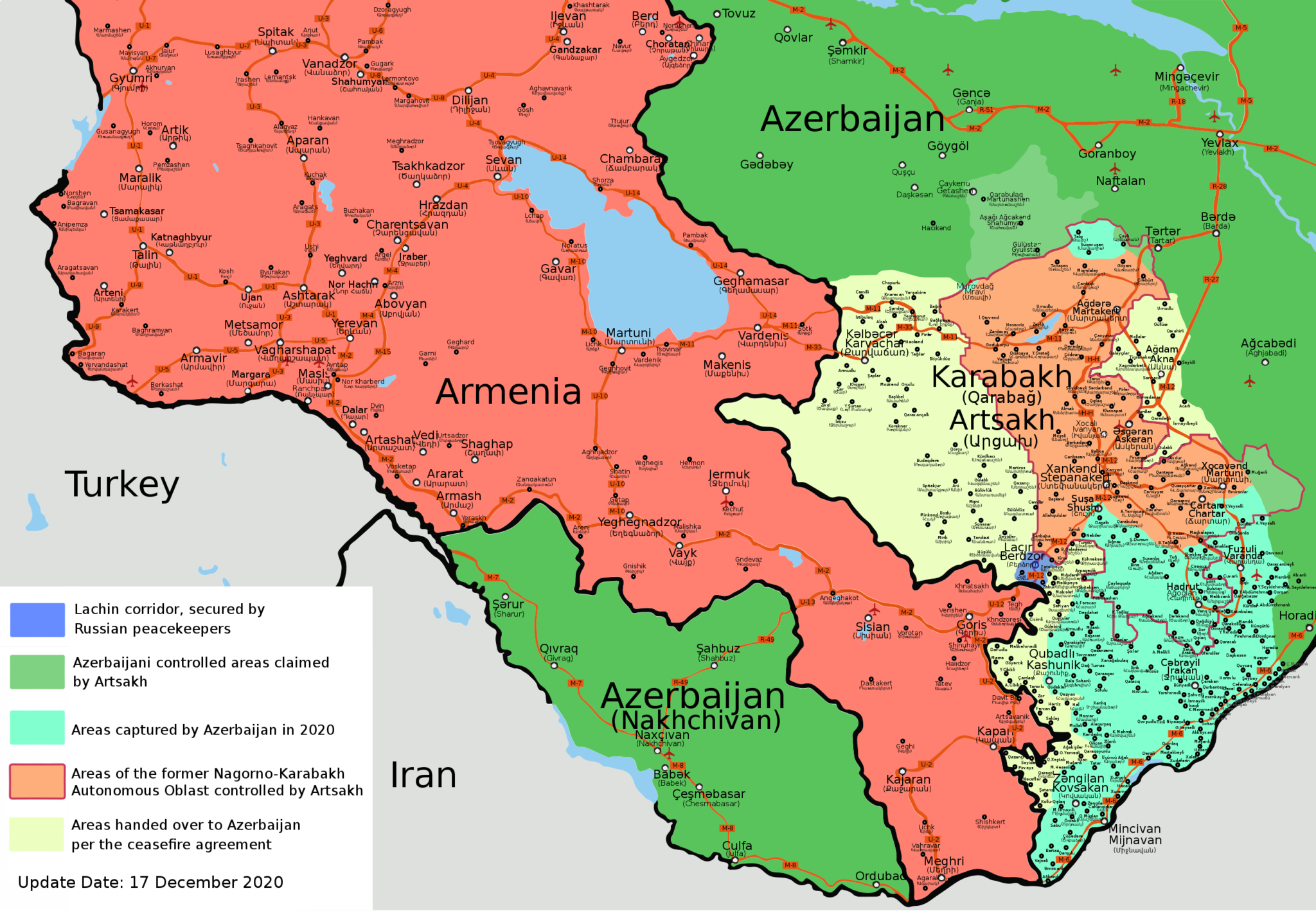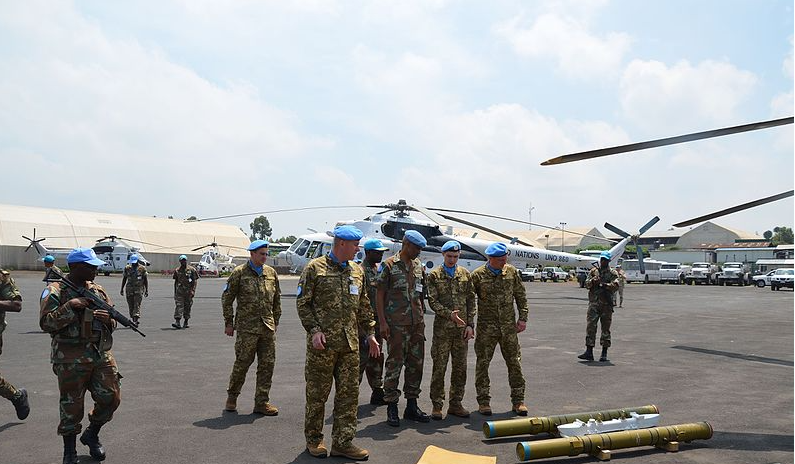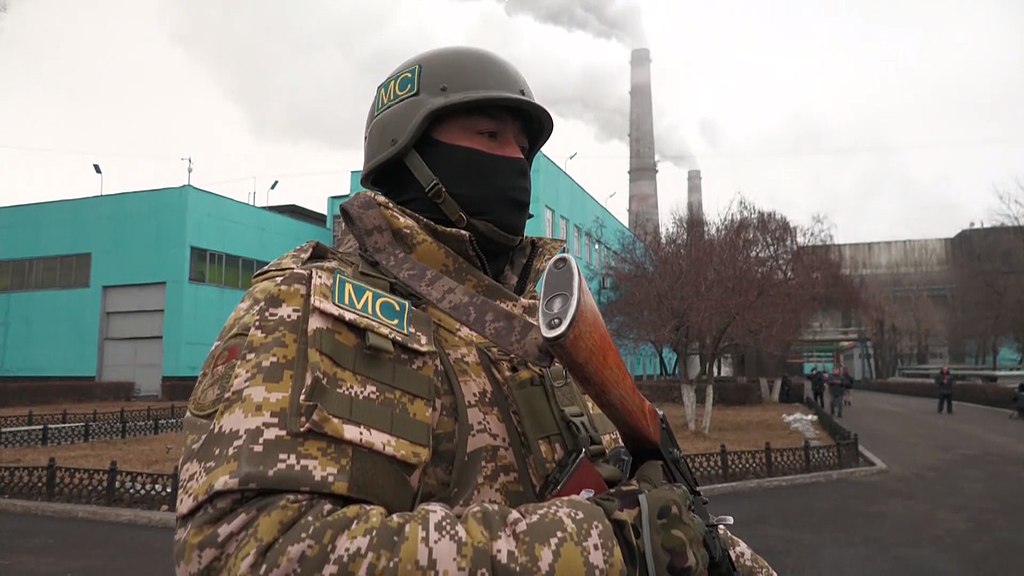CSTO collective peacekeeping forces in Kazakhstan 2022-JAN-11, Kyrgyzstan soldier in Almaty Power Station-2.
“The Russian Ministry of Defense noted that the CSTO peacekeepers in Kazakhstan will not be involved in the active operational measures of local law enforcement and security agencies…”
The Collective Security Treaty Organization (CSTO), an intergovernmental military alliance of select post-Soviet states, made history on 6 January 2022, when the organization’s leadership agreed to a request from the government of Kazakhstan to deploy peacekeepers to support Kazakh security forces after a few days of civil unrest across the country. This marked the first time the CSTO sent units from its Collective Operational Reaction Force and demonstrated how the organization can respond to an incident on short notice.
According to the excerpted article in semi-independent Russian daily newspaper Kommersant, the CSTO Security Council agreed to Kazakhstan’s request for peacekeepers based on Article 4 of the organization’s treaty. The article notes that this section of the treaty provides for a collective response in the event of a threat to the “security, stability, territorial integrity and sovereignty” of a member state. It also points out “the authorities of Kazakhstan said the attacks were coordinated from abroad, but did not say by who.” The article mentions how previous requests to the CSTO for military support, in 2010 by Kyrgyzstan and in 2021 by Armenia, were not granted. The CSTO did not respond to Kyrgyzstan with military support in 2010 because its articles at the time did not allow a response to an internal security issue. After the 2010 unrest, CSTO member states changed the articles to allow the collective forces to be used to respond to an internal security threat of a member state. The lack of a response to Armenia in 2021 is notable as it involved clashes with Azerbaijan, an external threat to Armenian security, but the CSTO had not previously provided the Armenian government support for its conflict with Azerbaijan and stated the 2021 clashes were a border incident, which essentially did not require an actionable response.
The article from Central Asia-focusedindependent news website Fergana Agency reports on the units deployed and breaks down contributions from member states. The majority of these came from Russia, including companies of the 31st Airborne Brigade, 98th Airborne Division, and the 45th Guards Special Forces Brigade. A company of the 103rd Vitebsk Guards Airborne Brigade from Belarus, soldiers of the 25th “Scorpion” Special Forces Brigade from Kyrgyzstan, as well as special forces units from Armenia and Tajikistan also deployed. The units in this peacekeeping force closely match the units that conduct annual joint military exercises of the CSTO’s collective forces. The article also notes that the peacekeeping force tasks included protecting key infrastructure and airfields and that “the CSTO peacekeepers in Kazakhstan will not be involved in the active operational measures of local law enforcement and security agencies.” This included Russian forces at Almaty’s international airport. While the CSTO peacekeeping forces reportedly began withdrawing on 13 January, the deployment demonstrated the capabilities of the CSTO to respond to an incident involving a member state.
Source:
Kiril Krivosheev, Yelena Chernenko, Yuri Barsukov, and Arshaluis Mgdesyan, “ОДКБ спешит на помощь (The CSTO is hurrying to help),” Kommersant (semi-independent Russian daily newspaper), 6 January 2022.
https://www.kommersant.ru/doc/5156017
…Around midnight (on 5 January), President Tokayev held a meeting of the Security Council, at which he announced a “counter-terrorist operation.” “The groups are, in fact, international, which have taken part in serious training abroad and their attack on Kazakhstan should be regarded as an act of aggression,” President Tokayev explained. “In this regard, today, I turned to the CSTO heads of state to assist Kazakhstan in overcoming this terrorist threat.”…
A confirming response to this request was sent overnight. The statement was, ironically, made by a politician who himself unsuccessfully sent a similar request not long ago, Prime Minister of Armenia, Nikol Pashinyan, who is the current head of the CSTO Collective Security Council…
the Council made a decision in accordance with Article 4 of the treaty…It involves collective assistance, including military, if “one of the participating states is subjected to aggression (an armed attack that threatens security, stability, territorial integrity and sovereignty).”…The authorities of Kazakhstan said the attacks were coordinated from abroad, by did not say by who…
It is unknown how long the peacekeeping mission will last…It should be noted that the CSTO collective forces are being used for the first time. In 2010, authorities in Kyrgyzstan asked for a deployment of the organization’s forces (against the backdrop of interethnic conflict in the south) as well as in 2021, when authorities of Armenia requested it (against the backdrop of an armed confrontation with Azerbaijan). However, these requests were not granted…
Source: Alexander Rybin, “Охранники инфраструктуры с боевым опытом (The guards of infrastructure with combat experience),” Fergana Agency (independent news website focusing on Central Asia), 7 January 2022.
https://fergana.agency/articles/124563/
On the night of 6-7 January, the first units of the Russian Airborne Forces arrived in Almaty and took control of the airport of the largest city in Kazakhstan…The total number of the peacekeeping force in Kazakhstan should stand around 2500. This includes a company from Belarus (around 150-200), 200 from Tajikistan, 150 from Kyrgyzstan and another 100 from Armenia. The remainder are from the Russian Army.
All of the Russian units in Kazakhstan have previously been involved with military operations in the post-Soviet period.
The 31st Airborne Brigade, which is permanently garrisoned in Ulyanovsk, took part in the Second Chechen campaign and the war in South Ossetia in 2008…Since 2013, the 31st has been part of the Rapid Reaction Forces.
The 98th Airborne Division is located in Ivanovo. This unit has experience in participating in peacekeeping missions – in Bosnia and Herzegovina in 1996, in Georgia-Abhazia in 1998 and in Kosovo in 1999…The 45th Guards Special Forces Brigade of the Airborne Forces is one of the most elite units in the Russian Army…
A peacekeeping company from the 103rd Vitebsk Guards Airborne Brigade deployed from Belarus…Kyrgyzstan sent 150 soldiers from the 25th “Scorpion” Special Forces Brigade to Kazakhstan…It is still unknown which units Tajikistan and Armenia deployed, but, according to local media, they are special forces…
As stated by the ministries of the CSTO governments, which agreed to take part in the peacekeeping mission in Kazakhstan, the military personnel will carry out task to protect key infrastructure and airfields. The Russian Ministry of Defense noted that the CSTO peacekeepers in Kazakhstan will not be involved in the active operational measures of local law enforcement and security agencies…
Image Information:
Image: CSTO collective peacekeeping forces in Kazakhstan 2022-JAN-11, Kyrgyzstan soldier in Almaty Power Station-2.
Source: https://commons.wikimedia.org/wiki/File:CSTO_collective_peacekeeping_forces_in_Kazakhstan_2022-JAN-11,_Kyrgyzstan_soldier_in_Almaty_Power_Station-2.jpg
Attribution: CC 4.0




